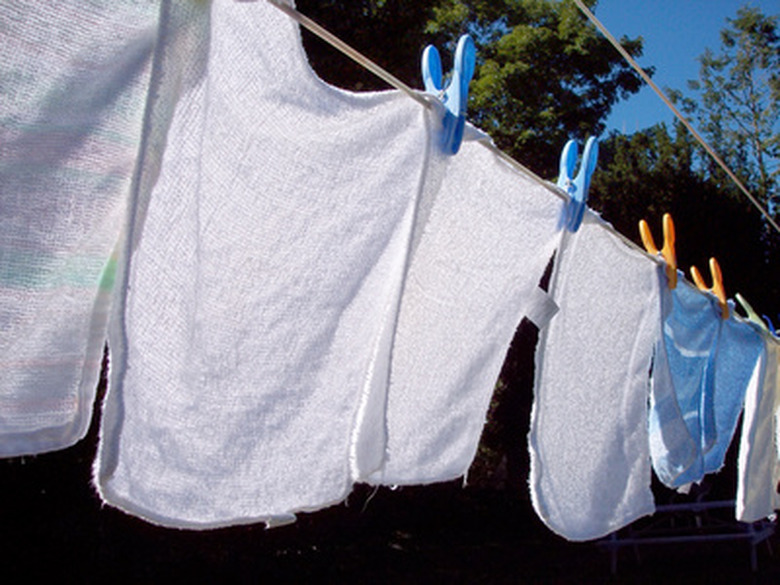Differences Between Borax And Borateem
Both borax and Borateem are laundry-enhancing products that are added to a wash cycle. Both have whitening qualities and come in powdered form. Borax has been used as a laundry booster since the 19th century whereas Borateem is a specific brand made by the Dial Corporation.
Manufacturers
Manufacturers
According to the Britannica Online Encyclopedia, sodium tetraborate decahydrate, more commonly known as borax, is a colorless, naturally-occurring crystalline mineral. Because borax is a naturally-occurring element, it is not a trademarked brand name. Borateem, on the other hand, is the trademarked name for Dial's powdered bleach product.
Ingredients
Ingredients
Dial states that Borateem is a "color-safe dry bleach." According to www.pesticideinfo.org, Borateem is 98.7 percent borax but also includes tribromsalan, a microbiocide, and sodium dodecylbenzene sulfonate, an insecticide. Borax does not contain other ingredients.
Uses
Uses
Borateem's main use is as a bleach product for laundry. Borax can be added to the laundry, and it is also used in glass and pottery glazes, fertilizers, soaps, mouthwashes, and in other industries. Because of its additional ingredients, Borateem cannot always be substituted for borax, but borax can usually be substituted for Borateem.
Cite This Article
MLA
Horne, Viola. "Differences Between Borax And Borateem" sciencing.com, https://www.sciencing.com/differences-between-borax-borateem-6807440/. 24 April 2017.
APA
Horne, Viola. (2017, April 24). Differences Between Borax And Borateem. sciencing.com. Retrieved from https://www.sciencing.com/differences-between-borax-borateem-6807440/
Chicago
Horne, Viola. Differences Between Borax And Borateem last modified March 24, 2022. https://www.sciencing.com/differences-between-borax-borateem-6807440/
